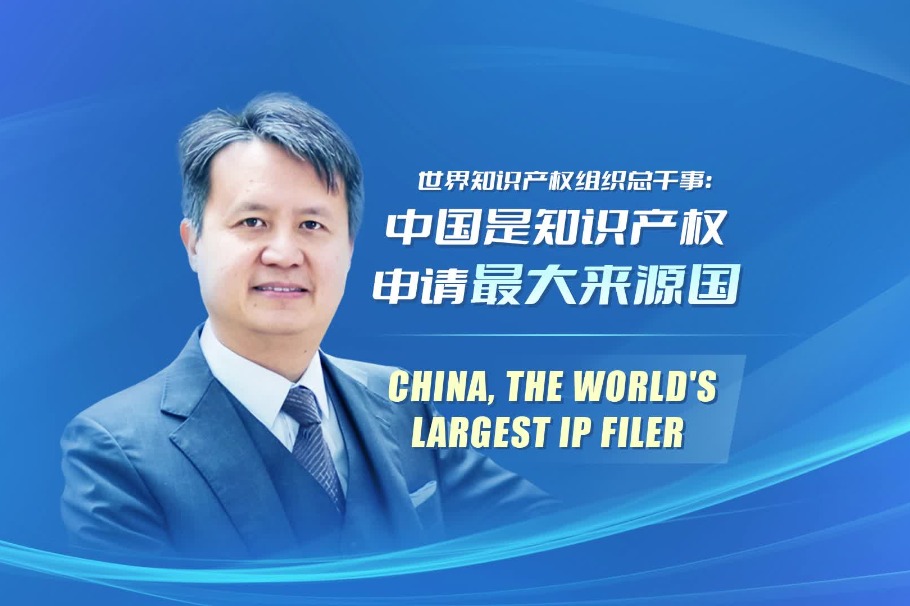China's IP indexes met the expectations in the first half of 2021


As we learned from the third-quarter regular press conference of the China National Intellectual Property Administration (CNIPA) on July 14, China's IP indexes met the expectations and the operation of the IP system was running smoothly. A group of statistics may epitomize the progress: In the first half of this year, 339,000 invention patents granted, 3.724 million trademarks registered, 87 geographical indications (GI) products determined, 254 GIs certified as collective trademarks and certification trademark, 7,629 certificates for layout designs of integrated circuits dished out, while patent and trademark pledge financing amounted to 107.4 billion yuan, up 25.9 percent.
Data also brings three prominent features into life: continuing uplift of IP examination operations, surefooted growth of domestic companies in possession of invention patents, mounting growth of granted or registered IPRs owned by foreign applicants.
According to Heng Fuguang, Deputy Director General of CNIPA's General Affairs Office, granted patents, trademarks, and layout design of integrated circuits all grew rapidly year-on-year, reflecting that Chinese market players became more active in innovation, creation and entrepreneurship, a result of a continuing, profound reform in streamlining administration, delegating power, improving regulation, and upgrading services as well as a result of improved IP examination and efficiency. As of the end of June, the pendency for examination of Chinese invention applications was shrunk to 19.4 months. The pendency for examination of higher-valued invention applications was shortened to 13.4 months. The average examination pendency for trademark registration was curtailed below 4 months.
Statistics show that in the first half of this year, the number of domestic companies housing invention patent has increased steadily. As of the end of June, there were 270,000 domestic companies owning valid invention patents, an increase of 24,000 from the end of the previous year. In the meantime, granted or registered IPRs of foreign interests continued their upward journey. In the first half of the year, 54,000 invention patents were granted to foreign applicants, up 30 percent; foreign applicants registered 90,000 trademarks in China, up 7.5 percent. "This shows that foreign companies have confidence in China's business environment and are willing to execute their business operations and IP plans in China," Heng said.
This year is the first year of the "14th Five-Year Plan". In order to start on a proper footing, CNIPA has vigorously promoted the high-quality IP development. According to Ge Shu, Director General of CNIPA's Strategic Planning Department, China's patent reserves in core technology fields have been continuously stocked. As of the end of June, among the valid invention patents in China's mainland (not counting in numbers of Hong Kong, Macao and Taiwan), the number of invention patents in strategic, emerging industries reached 731,000, up 53,000 from the end of the 13th Five-Year Plan period and the momentum for industrial innovation and development continued.
In the first half of this year, 13,800 cases of administrative adjudication of patent infringement disputes in various provinces (autonomous regions and municipalities) across the country were filed. The smooth development of this work is due to the newly revised Patent Law's newly-added "Patent Administration Department under the State Council can deal with patent infringement disputes that have a significant national impact at the request of patentees or interested parties", legislatively granting CNIPA a consolidated authority to deal with major patent infringement disputes.
In order to ensure the smooth implementation of this system, on May 31, CNIPA issued the "Administrative Adjudication Measures for Major Patent Infringement Disputes", which is conducive to further improving the handling of major cases, unifying the standards for determining infringement, and giving full play to the role of the patent administrative department under the State Council guiding and coordinating the national patent administrative protection work, and improving the patent administrative protection system.
At the press conference, Lei Xiaoyun, Director General of CNIPA's IP Utilization and Promotion Department, introduced that on June 16, CNIPA , China Banking and Insurance Regulatory Commission, and National Development and Reform Commission jointly issued the Action Plan for Conducting Pledge Financing at Industrial Parks to Benefit Enterprises (2021-2023), strive to achieve an annual increase of more than 20 percent in the number of pledge projects and financing amount in more than 100 industrial parks in three years and ensuring IP pledge financing benefiting hundreds of parks and ten thousand enterprises. Thanks to a series of related measures taken by CNIPA, the amount of IP pledge financing has grown rapidly.




